ETH Denver Episode 5: A New Standard For DAOs Featuring Illia Polosukhin NiMA Asghari

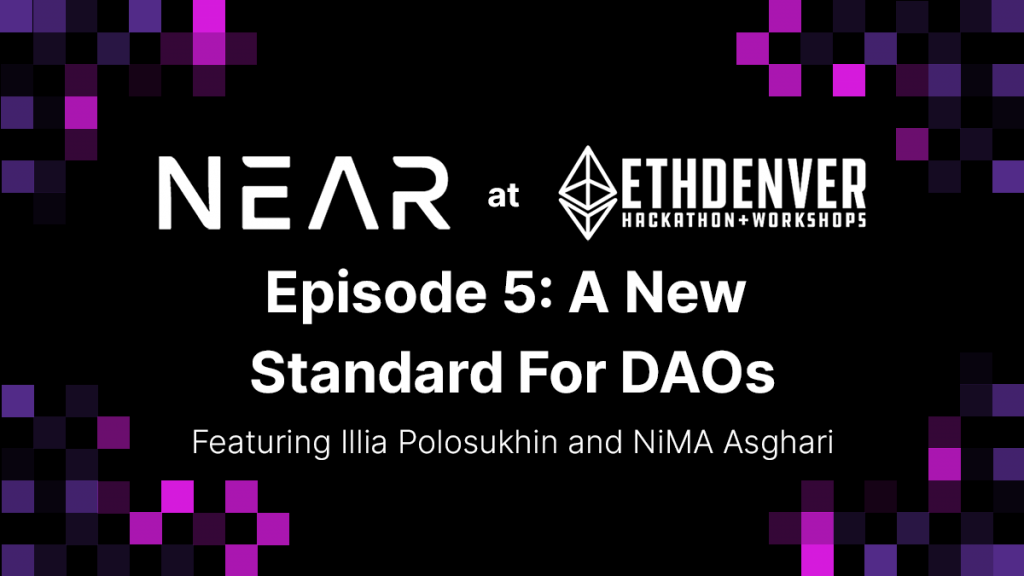
The final appearance of the NEAR Team at ETH Denver featured NEAR Co-Founder Illia Polosukhin as well as NEAR’s Head of Ecosystem, NiMA Asghari. The focus of the discussion was on the nature of DAO’s and the value of DAO’s in the context of the development of crypto. A full PDF Transcript of the talk can be found here, while a YouTube video of the event can be found here.
The Big Picture Value of Decentralized Autonomous Organization (DAOs)
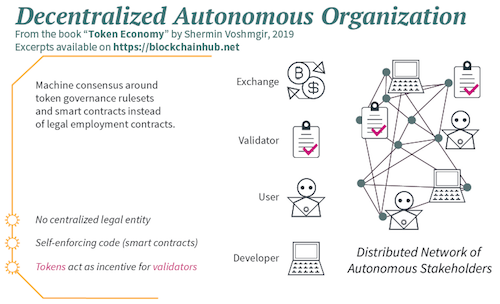
Illia’s contribution to the panel was largely focused on explaining the value of DAO’s in the context of future business models for open source protocols:
“I think, at the highest level, you know, the kind of original discussion of DAOs is about how people can self organize in new ways, and share resources and build something and be aligned…I think it unlocks a lot of on-chain, resources and other things like governance, management, and investment and stuff like this. So it kind of solves this problem right now, while we’re still figuring out just a kind of future pathway that tries to understand how we build companies in the new world?”
As he explains, DAO’s are new governance vehicles for open-source protocols that will seek to align stakeholders around common resources, objectives, and long-term opportunities. They will also be important for handling funds and investments on and between protocols. The new world that Illia refers to, is that of self-executing code: In which protocols themselves must handle contracts and engagements with other devices and protocols, while also accommodating validator and token holder governance preferences.
The Emerging Field of DAOs
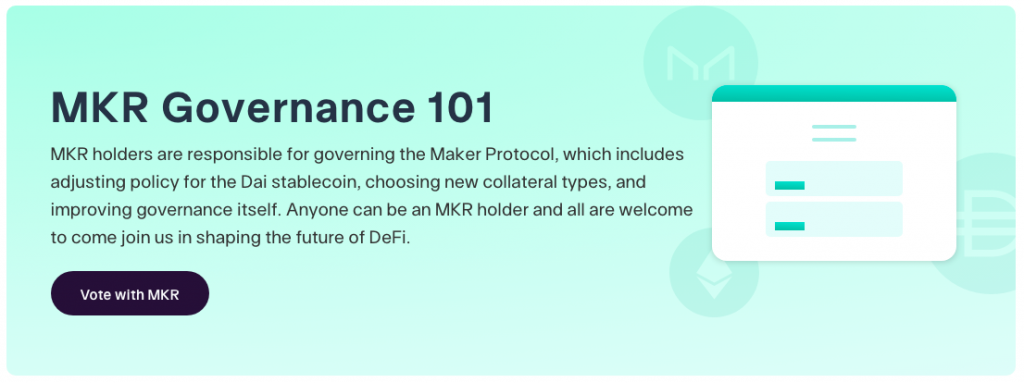
MakerDAO is one of the forefront DAOs in the DeFi space. (Source)The substance of the panel – and the most important points pertaining to the future of DAOs – were brought up by NEAR’s Illia, as he discussed a variety of big-picture topics on how DAOs fit into new paradigms forming around crypto.
A first paradigm relates to DAOs for inter-protocol business development purposes:
“Oh, yeah, I think one of the examples that is emerging for sure is different application DAOs starting to be leveraged more for business development, and like, where either like individuals or, or other DAOs, or other organizations can pretty much apply to, for this DAO to work with some other party, right? And I actually think that’s really interesting, because like, if we imagine that each organization is, you know, operating a DAO, then well, it’s like, almost they are, you know, requesting work or requesting some kind of collaboration from each other. And so that’s kind of already happening through some types of proposals and things like that.”
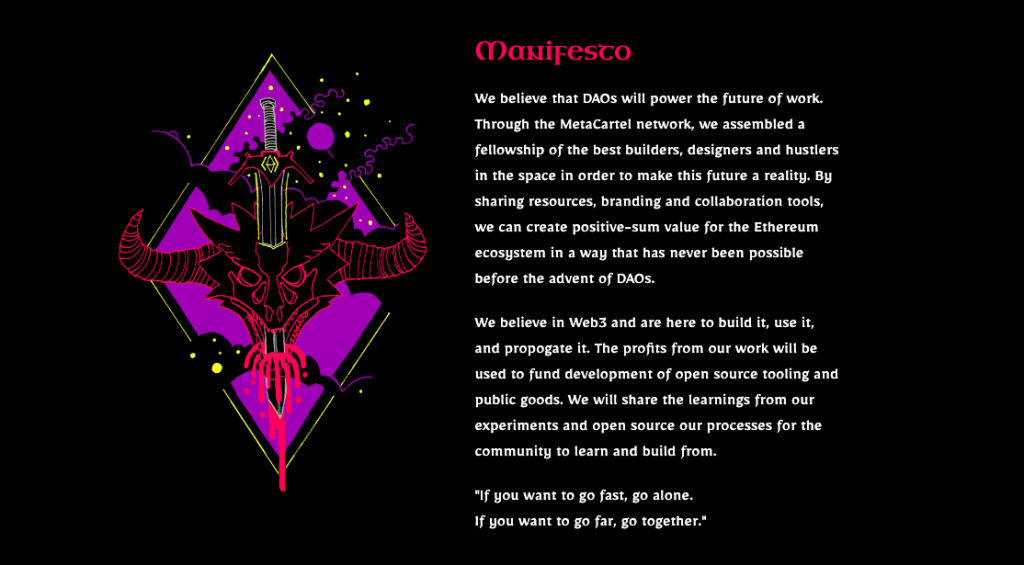
Raid Guild is a current working decentralized organization of designers and builders. (Website)DAO’s would effectively put collaboration on-chain for all stakeholders to visualize and participate in ongoing collaborative processes. This is directly to the second paradigm of DAOs – as a common API for different stakeholders to collaborate within:
“There’s more projects launching, and then this DeFi explosion, right, where kind of everybody wants to have their own governance, kind of fits our platform, I think this just showcases the need, where the complexity of interaction between all of these parties will just keep growing. And if there is no clear “API” for them to interact with each other, right? Like, we’re kind of going from individuals interacting on the internet, right, to projects, like, you know, Balancer and 1inch, for example, now interacting with each other, they are interacting through smart contracts, but same time, both of them now have a governance layer, that can change, like, you know, a bunch of stuff about how these things work. And so, like this governance, people who are trying to make decisions, they need to find a way to interact with each other.”
DAO’s in this sense, are necessary infrastructure for the expansion and maturation of existing protocols and products running on-chain. As a common ‘API’ like tool, DAOs have the capacity to unify and coordinate governance between protocols.
Challenges for DAOs: Legalities and Membership

The DAO on Ethereum was the first foray into decentralized autonomous organization back in 2016.As the concept of a DAO is not even 10 years old, they remain extremely young with many remaining challenges. Two of the largest challenges for DAOs revolve around legal considerations, as well as the notion of membership.
Legal considerations were explained in the panel as being constraints from two sides:
“Yeah, and I think for the LAO and people who are dealing with legal doubts, you have like these constraints from two sides, you have to formalize with respect to law, but also code and then you also have humans and communities.”
In short, DAO’s are still trying to navigate parallel worlds of legal jurisdictions, hard-coded rules, and human behavior and decision making. This ties directly into the second challenge, revolving around membership:
“I would say it’s also always a question of like, how do you define memberships? Like you could, you could imagine in certain organizations, especially as they grow that you have certain levels, like, when you think about shares in a company, you have like voting shares, non voting shares. I mean, even, even already in Moloch V2, you have this idea of shares and loot, or we have non-voting members that have a say, if they want to reach me, they can get some of the of the asset in the DAO, but they they’re not able to vote. So I think it will also be part of that, we will have to define what do we mean, when we say membership? What kind of a machine are we interested in? And things like that.”
In short, DAO’s have yet to fully compliment the complexity of human organizational behaviors and are in need of nuances and new structures in order to accommodate a larger host of interests and behaviors for different stakeholders. As the quote above details, the next wave in DAO experimentation is precisely focused on delimiting these different roles and the weight of votes per member.
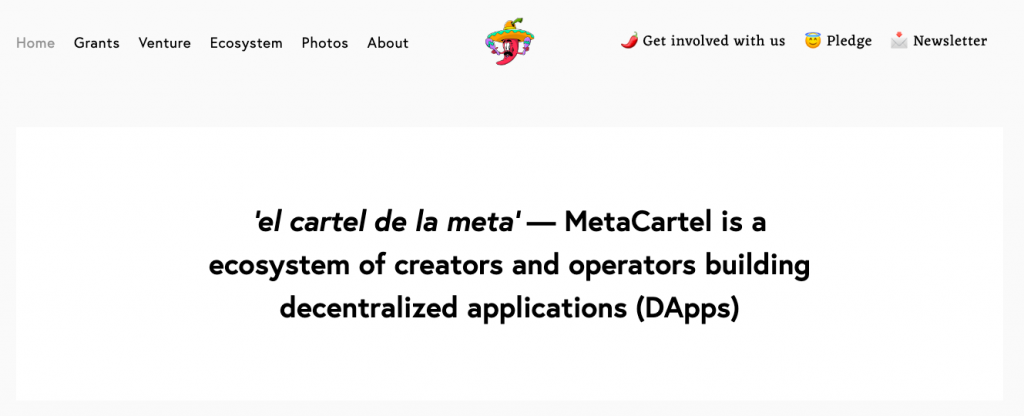
For example, I remember with MetaCartel, there was no way initially to upgrade the DAO - NiMA AshgariNEAR’s NiMA Asghari went deeper on this point specifically as it pertained to formalizing DAO Standards:
“We should probably come up with standards for DAOs, too. For example, I remember with MetaCartel, there was no way initially to upgrade the DAO. So everyone had to rage quit and then join the new DAO. So something like this should be formally defined. So if two DAOs have some kind of bond or collaboration or alliance, they know that we will have like a seven days notice period for this other DAO to get dissolved. And then like we have to return the assets and stuff. So I think that’s probably one of the reasons why we do really need to formalize DAO standards.”
Social Tokens and DAOs
One interesting area of DAO innovation is discussed in relation to using Social Tokens for DAO interactions. As the discussion goes, with a social token it is possible to limit engagement with the DAO to those willing to purchase the DAO social token in question:
“At the root of it is you need to hold a token in order to be in this chat. And that is kind of like this beginning of a membership, or, you know, I hesitate to say, identity, because that’s a huge rabbit hole. And then you go to mixing your platform username, because we allow token holders to assemble and coordinate through telegram and discord and the bot just controls. If you were to move those tokens out, the bot would just kick you out. It’s very, very simple. It’s not quite a DAO, but we’re seeing use cases of people using Snapshot, which is an off-chain voting tool, and Collab.Land and to like formalize. I think this notion of membership, and this kind of standardization, I think, will emerge regardless.”
The Tip of the Iceberg
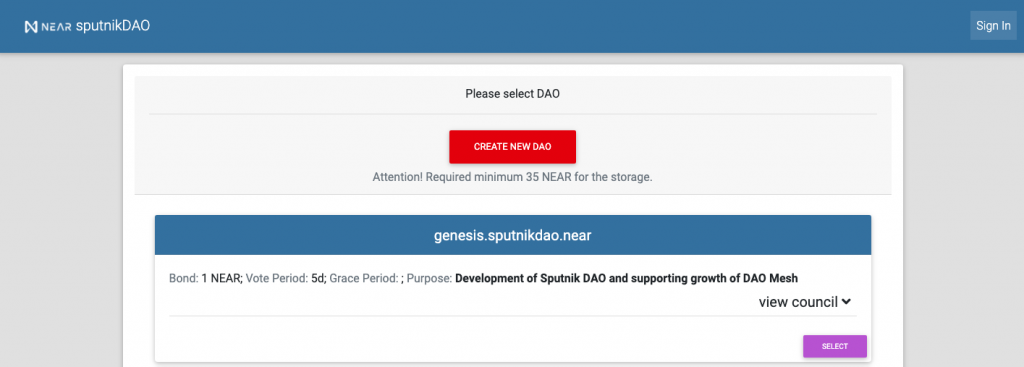
Sputnik DAODAO’s are only just starting to become common as a means of handling protocol governance in and between protocols. The panel concluded with the clear point that the current state of DAO’s is very much the tip of the iceberg. NEAR’s Sputnik DAO is one representation of the constant innovation in the space, and the many high hopes for a future involving DAOs both inside Web3 and for existing Web2 applications.
“I mean, in the Web2 space, you’re actually seeing, I think it’s Stir, they, you know, raised 4 million in October to help influencers collaborate on YouTube. And I think it was just yesterday, they announced a $100 million raise. So within four and a half, five months, they went from seed to series A, because there’s demand there, like on the Web2 space. So it’s really like this collision between Web2 creator economy influencers that needs to start collabing because they’re getting demonetised from these different platforms. And then now you see them looking into crypto with the explosion, interest, mainstream adoption, and they’re just looking for another revenue stream. So I think we’re just kind of at the tip of the iceberg.”




